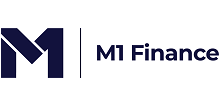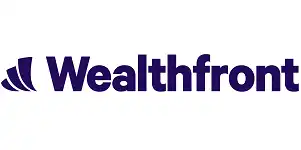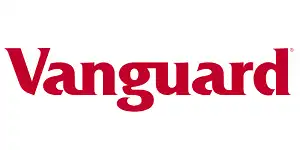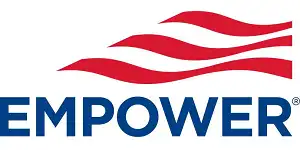Robo-advisors are automated investing apps that help you build a balanced investment portfolio without managing it yourself for a fraction of the cost of a traditional financial advisor.
Our pick for best robo-advisor, Wealthfront, makes passive investing easy and lucrative by offering a complete service for a low annual fee. Investors can start with as little as $500 with a focus on passive investing—a “buy and hold” strategy—that minimizes trading, checking your portfolio constantly, and maximizes long-term gains.
If you’re instead looking to make your own trades, then check out our list of the Best Online Brokerage Accounts.
Overview: Best robo-advisors
- Our Pick: Wealthfront
- Best for Roth IRAs: Betterment
- Best for beginners: Acorns
- plus some more also great options
Wealthfront: Best overall robo-advisor
Wealthfront offers some of the more sophisticated investing tools of any robo-advisor without the need for a ton of experience to get started. Wealthfront is a robo-advisor both for goal-oriented investors just starting with $500 to those with balances of $100,000 or more.
Wealthfront is designed for young professionals, anyone from passive investors who want expert digital guidance, to people who want to be smarter with money.
With low fees and multiple tax perks, automated investment management tuned in to your individual risk level make Wealthfront worth a look.
- Passive investing with automated management
- Tax-loss harvesting
- Ability to customize portfolios
- No fractional shares of ETFs in automated accounts
- No human advisors
Wealthfront features include Smart Beta, direct indexing, and advanced tax-loss harvesting. In fact, in taxable accounts with more than $100,000 invested, Wealthfront offers stock-level tax loss harvesting on a daily basis. Wealthfront also offers quite a few other notable perks for a robo-advisor, including portfolio loans on taxable accounts, access to ETFs in different asset classes, and a free financial planning and goal-setting tool called “Path.” Path is the financial engine that powers all the personalized insights and advice you receive when you plan with Wealthfront.
Wealthfront even offers a cash account with a high interest rate and up to $5 million in FDIC insurance through partner banks. Wealthfront may be the most complete robo-advisor service available today, and with a low annual fee, it’s also one of the best.
» MORE: Sign up for Wealthfront today or read our Wealthfront Review
Betterment: Best robo-advisor for Roth IRAs

Betterment offers a suite of financial planning tools, and access to both standard brokerage accounts and retirement accounts, all for a low advisory fee.
Betterment boasts a low 0.25% management fee, which gives you access to all of its planning and goal-setting tools, as well as ETFs in over a dozen asset classes. Betterment also has a Premium plan for high-net-worth individuals, offering access to CFP® practitioners and full-service financial planning for an additional annual fee. The minimum, however, for this is $100,000. Betterment ultimately provides automated investment management comparable to traditional human investment advisors but at a fraction of the cost
On taxable accounts, Betterment offers tax-loss harvesting. This is a strategy in which losing asset positions are sold off near year-end to offset gains in other asset classes. The losing asset classes are later replaced with comparable ETFs to maintain your portfolio’s target asset allocation. For tax-sheltered retirement accounts, Betterment is one of the best all-around robo-advisors available, providing expert tools and guidance, like a retirement goal to help you reach your target savings amount.
» MORE: Review of Betterment
Acorns: Best robo-advisor for beginners
Acorns makes investing easy for beginners by simply rounding up purchases to the nearest dollar and investing the difference. Add to that a simple onboarding process and well-balanced Acorns portfolios consisting of low-cost index funds, and Acorns is a great way to help new investors build a solid investment plan without much work.
Acorns makes it easy to start investing (even if you know nothing) and provides helpful tools to help you save more automatically. In under 3 minutes, start investing spare change, saving for retirement, earning more, spending smarter, and more.
- Effortless automated investing
- Easy-to-use savings features
- Low-cost solution to manage money
- Flat monthly fee more expensive for smaller accounts
- Can use more robo-advisor features
Headlined by a well-designed mobile app and lots of educational resources, Acorns offers the standard robo-advisor features, such as recurring investments (as little as $5 at a time), automatic portfolio rebalancing, and dividend reinvestment. There’s also discounts at online retailers for ordering through their shopping portal. The monthly fee can be costly, though, if you have a small amount invested since it’s a dollar figure rather than a moving percentage.
Acorns is a micro-savings app, a checking account, a cash-back app, and a robo-advisor. It’s a swiss-army knife option that’s not intimidating for beginners, which means you don’t need much else.
» MORE: Open an account with Acorns or check out our Acorns Review
Also great
There’s plenty of additional robo-advisors based on what you’re looking for in a robo-advisor, like lower fees or more DIY strategy. Check out some robo-advisors options below that are also great.
Vanguard Digital Advisor®: Best robo-advisor for low-cost ETFs
Vanguard is the world’s largest mutual fund provider the pioneer of low-cost index investing. With a commitment to low and transparent investment fees, access to hundreds of index funds, and a member-owned business structure, Vanguard is always looking out for its members. The Vanguard Digital Advisor® service is a robo-advisor that offers simple tools and access to broadly diversified, low-cost ETFs.
Vanguard Digital Advisor is a low-cost robo-advisor offered by Vanguard, the world's largest provider of mutual funds.
Vanguard Digital Advisor combines Vanguard's famous low-cost index funds with personalized strategies and advice for your unique investing goals.
- Vanguard's unmatched reputation
- Advisory fees as low as 0.20%
- ESG option
- Not for active traders or stock pickers
- $3,000 account opening minimum
The expense ratios on the Vanguard ETFs average around 0.05% annually, meaning you are only charged $5 for every $10,000 Vanguard manages. Vanguard Digital Advisor® automates the process by rebalancing the portfolio as needed and facilitating recurring investments. For 100% index-fund portfolios, Vanguard charges an advisory fee of 0.20% of invested assets each year. (If you want to add actively-managed funds to your portfolio, the fee is 0.25% per year). New clients will enjoy no fees for the first 90 days. $3,000 minimum required to open an account.
If you want access to a human advisor, Vanguard lets you upgrade your Digital Advisor® to its Vanguard Personal Advisor Services® offering, giving you unlimited access to Vanguard financial planners for a low annual fee. There are some additional tools as well, including a debt payoff tool, and a dashboard that tracks your progress toward retirement and other goals. Overall, Vanguard offers a simple approach to retirement planning, and keeps fees lower than competitors.
» MORE: Read our Vanguard Digital Advisor® Review
SoFi Automated Investing: Best robo-advisor for low fees

SoFi offers a unique robo-advisor service, with no management fees, fully-automated investing, and access to human financial advisors and career counselors at no extra cost. The only fees you pay are the expense ratios for ETFs in the portfolio, but SoFi also waives the fees on the SoFi-owned funds for users.
SoFi offers access to a wide selection of investments, with ETFs in a dozen asset classes, and the ability to open both taxable and retirement accounts. The platform has standard robo-advisor services (such as automatic rebalancing, recurring investments, etc.), but also lets you hop on a call with a licensed financial advisor for advice on how to invest and save toward your goals. For cons, there’s no tax-loss harvest and SoFi utilizes their SoFi ETFs in portfolios, which don’t have a long track record.
SoFi is an all-in-one finance company that also administers other financial products, such as student loan financing, personal loans, a rewards credit card, crypto investing, and even full banking services. Overall, SoFi is one of the lowest-cost robo-advisor around, and is designed to help you with more than just investing.
M1: Best robo-advisor for DIY investors

M1 is not a typical robo-advisor, but does offer automated investing solutions through its platform and mobile app. M1 Finance is an investing app that allows users to create their own investing “pie,” which is just a simple way of saying portfolio.
When you invest, M1 Finance automatically divides the money up between the different investments in your pie, and automatically keeps the asset allocation in check by rebalancing every time you invest. M1 Finance also offers “smart transfers,” which allows you to create “if this, then that” rules to transfer and invest your money automatically. For example, you could set a rule that says: “Invest all extra funds when my account balance reaches $1,000.” M1 Finance also offers “Expert” pies, which are pre-made investing portfolios selected by experts, according to different investing styles. You can also choose to copy the portfolio of other users that share their custom pie on the platform.
M1 Finance is free for most users, but there are a few features that require upgrading to an M1 Plus membership, which costs $125 annually. Not cheap. M1 Finance is for DIY investors, as they don’t make investment decisions for you, and don’t give you access to financial advisors to help you invest. But if you are someone who wants to automate your investments, but have the freedom to pick and choose what you’d like to invest in, M1 Finance could be a good option.
Empower: Best robo-advisor for high-net-worth individuals
Empower, previously known as Personal Capital, is best known as a free investment tracker for your portfolio and analysis tool, allowing you to link up your financial accounts and see how your investments are performing.
Empower is a hybrid digital wealth management company and powerful finance app. In addition to paid investment management and advisory services, Empower offers a number of free tools and calculators to help with everything from net worth tracking to saving and retirement planning.
- Easy-to-use app provides financial 'big picture'
- Tools and calculators are completely free to use
- Great security, including two-factor authentication
- Wealth management fees can be be high
- May be subject to upsells
The Empower app itself is completely free. But, in addition to some of the best free tools and calculators, Empower is a high-end advisory firm, offering customized investment plans for high-net-worth individuals at a fair price. Empower’s wealth management services are available once you have $100,000 or more to invest, and come with unlimited access to licensed financial advisors, a full financial plan, and access to all of Empower’s online tools to track your investments. While management fees start at 0.89% annually, the fees can be as low as 0.49% if you have over $10 million invested.
Empower isn’t a robo-advisor option like others on our list but a premium selection for those looking to manage their portfolio.
» MORE: Sign up for Empower today or read our full Empower Review
The competition
These robo-advisor options didn’t make our immediate list of best robo-advisors but stand out for features and deserve an honorable mention.
Axos Managed Portfolios
Axos Bank offers managed accounts, where a robo-advisor makes trades and handles your portfolio’s risk level in response to your goals.
Axos doesn’t require ton of investing experience with a simple Managed Account option based on your personal tolerance and timeline. The actual set up is easy and the annual advisory fee (0.24%) is low compared to some alternatives. For $500, which isn’t cheap, Axos also provides the option to set up a traditional or Roth IRA with their Managed Portfolios. This option is still subject to the annual advisory fee, but does provide you with a personalized dashboard and unlimited automatic portfolio rebalancing.
Ellevest
Ellevest is a relative newcomer, beginning just in 2014, that advertises itself as the #1 investing platform for women, by women.
In concentrating on your financial journey, Ellevest focuses on issues that affect women, and aims to help to close the retirement gap that may exist between men and women. Ellevest plans begin at $12/month with up to five goal-specific accounts and portfolios built to your money goals. Portfolio options are diversified with risk-optimized mix of stock, bond, and alternative investment funds.
Charles Schwab
Charles Schwab offers Schwab Intelligent Portfolios, a robo-advisor with a human touch, that builds, monitors, and automatically rebalances a diversified portfolio based on your goals.
There are no advisory fees or commissions and the set-up is pretty easy. After completing a short questionnaire to establish your goals, tolerance for risk, and timeline, Schwab will provide you with a diversified portfolio of ETFs chosen by their experts. Your portfolio is then monitored after and balanced as needed. There’s also a premium option where you’re provided with 1:1 guidance for a one-time planning fee followed by a monthly fee.
How I chose the best robo-advisors
I reviewed nearly two-dozen robo-advisor services, and filtered out those that were too costly, or that didn’t offer competitive features and services. I picked robo-advisors that appeal to different types of investors to give a wide variety of choices. All robo-advisors on this list offer low-cost ETFs, and are registered with FINRA, keeping them compliant with investment laws in the U.S.
Who are robo-advisors for?
Investing beginners
If you want to start working on your financial future and grow your wealth (but don’t know how to start), a robo-advisor can be a great option to finally start investing.
Tip
Using a robo-advisor doesn't mean you have to stick with one in perpetuity. Robo-advisors can be great to start off before you're confident enough to take more control over where your money is allocated as your portfolio size grows.
Passive investors
The best robo-advisors rebalance based on your shared risk-tolerance and goals. There’s deposit options and automatic tax-loss harvesting features. Passive investors who don’t want to worry about purchasing or managing their own securities and the details that come along with that benefit from using a robo-advisor.
Who shouldn’t go with a robo-advisor?
‘Hands-on’ investors
Experienced investors that are already comfortable or beginner investors who want to get comfortable learning buying stock, like Apple or Tesla, are likely looking for a little more than what most robo-advisors offer. The alternative to a robo-advisor for that is using a brokerage account, where you can buy and sell chosen securities. The best online brokerage accounts come with no minimums and free trades.
Those who want a financial advisor
Most robo-advisors are automated based on your goal with very little, if any, 1:1 with an actual human on the other end. Those who want a human touch and are fine paying the higher fees may be better served learning how to find the best financial advisors.
What is a robo-advisor?
A robo-advisor is an automated investing service that helps you choose investments based on your risk tolerance, investing goals, and investing timelines. Robo-advisors do not rely on human interaction, and make investment decisions based on advanced algorithms and pre-selected portfolios.
Robo-advisors typically invest in low-cost ETFs, offering investment diversification while keeping the fees to a minimum. Robo-advisors also manage your investment for you, meaning that portfolios are automatically rebalanced on a regular basis, and some offer tax-loss harvesting to reduce your capital gains tax liability.
How does a robo-advisor work?
Robo-advisors typically onboard new users by asking a series of questions about your money, your life, and your personality, which helps them gauge your risk tolerance and select the right types of investments for you.
You are then presented with an investment mix of ETFs that comprise your portfolio, and you can adjust this by choosing a more “aggressive” or “conservative” investment approach. Once the portfolio is selected and your account is funded, the robo-advisor keeps your portfolio in balance (by rebalancing your portfolio), and invests new funds according to your asset allocation.
Robo-advisors are driven by algorithms and pre-defined parameters that help determine how to invest for a wide range of users.
Summary: Best robo-advisors
Robo-advisors make investing easier, and there are quite a few robo-advisor services to choose from today, including our top pick, Wealthfront. If you want to invest like a pro, but without paying the hefty annual fees of a financial advisor, a robo-advisor may be a good option for you.
Choosing the right robo-advisor means thinking about your investing goals, what features you absolutely need, and how “hands-off” or “hands-on” you want to be. And don’t forget to consider the fees, as they can take a considerable chunk out of your investment earnings over time.



